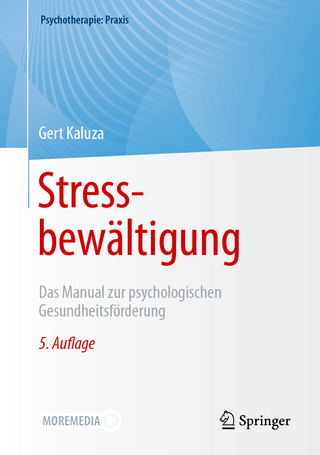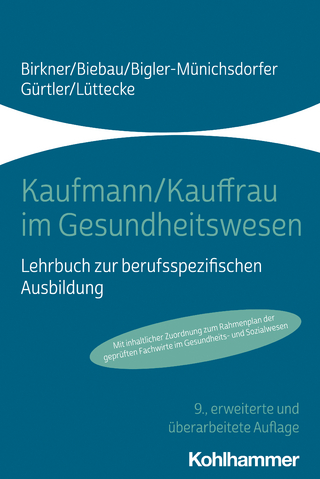
Evidence-Based Approaches in Positive Education
Springer (Verlag)
978-94-024-0108-0 (ISBN)
Mathew A. White Ph.D., is Director of Wellbeing & Positive Education at St Peter’s College, Adelaide, Australia. Mathew serves on the Senior Leadership Team of St Peter’s College, Adelaide. He graduated PhD from the University of Adelaide and completed residential studies at The Principals’ Center Harvard Graduate School of Education. Mathew is Senior Fellow in the Melbourne Graduate School of Education - The University of Melbourne and Affiliate in Cambridge University’s Wellbeing Institute. His work focuses on leadership, cultural change, and wellbeing. He has lectured at the Universities of Oxford, Melbourne, Pennsylvania and Bath. His publications appear in Journal of Positive Psychology, International Journal of Wellbeing, Psychology and International Journal of Appreciative Inquiry. Mathew has presented to the Governor’s Leadership Foundation, South Australian Government’s Executive Services Leadership Program and the Positive Education Summit & Round Table on Wellbeing at No. 10 Downing Street. He has counselled Catholic education, government systems, independent and Lutheran schools on applications of wellbeing. Mathew represented St Peter’s College as lead partner in Dr Seligman’s appointment as Thinker in Residence - Department of the Premier and Cabinet for the Government of South Australia. He is a member of the Wellbeing and Resilience Centre Education Committee – South Australian Health and Medical Research Institute, Academic Advisory Board – Positive Psychology Centre – University of Melbourne, Course Advisory Group – TAFE-SA, and Academic Committee – St Mark’s College, Adelaide. A. Simon Murray is the 14th Headmaster of St Peter’s College, Adelaide – one of Australia’s oldest independent schools, with over 1385 students and 220 staff. He has had 30 years of leadership experience in education. Prior to his appointment to St Peter’s College, Simon was Headmaster of Canberra Grammar School andBunbury Cathedral Grammar School. Simon was elected Chair of Association of Heads of Independent School of Australia from 2009 – 2011, representing over 390 member schools. He is a past Board member of the Independent Schools Council of Australia. He was appointed a Fellow of the Australian College of Educators in 2008 for his leadership in the independent school sector. Simon is a Fellow of the Australian Institute of Management. Simon has presented at national and international conferences on wellbeing, leadership, cultural change, and future directions in education. He was the St Peter’s College representative for Dr. Seligman’s role as Adelaide’s Thinker in Residence – Department of the Premier and Cabinet. Simon was one of thirty leaders in education invited to participate in a Positive Education Summit on Wellbeing at 10 Downing Street. He is the foundation Chairman and a board member of the Positive Education Schools Association (PESA), a board member of the International Positive Education Network (IPEN), a council member of Adelaide’s largest residential university college, St Mark’s College, and an appointed member of the diocesan council in the Anglican Diocese.
Foreword; Martin Seligman.- Preface.- Chapter 1. Building a Positive Institution; Mathew White and Simon Murray.- Chapter 2. A Comparison between Theological Christian Approaches to Wisdom and Peterson and Seligman's Classification of Character Strengths and Virtues; Theodore McCall, Lea Waters and Mathew White.- Chapter 3. Leading Whole-School Change; Lea Waters, Mathew White and Simon Murray.- Chapter 4. Measuring Whole School Well-Being in Students and Staff; Margaret Kern, Alejandro Adler, Lea Waters and Mathew White.- Chapter 5. Positive School Psychology; Zoë Alford and Mathew White.- Chapter 6. Strengths-Based Approach in the Classroom and Staffroom; Mathew White and Lea Waters.- Chapter 7. Character Education: A Role for Literature in Cultivating Character Strengths in Adolescence; Emily FitzSimons.- Chapter 8. Student Leadership and PERMA; John Vrodos, Tom McNeil with Mathew White.- Chapter 9. Future Directions in Well-Being; Mathew White and Simon Murray.
| Erscheinungsdatum | 21.11.2016 |
|---|---|
| Reihe/Serie | Positive Education |
| Vorwort | Martin Seligman |
| Zusatzinfo | 27 Illustrations, black and white; XXXIII, 181 p. 27 illus. |
| Verlagsort | Dordrecht |
| Sprache | englisch |
| Maße | 155 x 235 mm |
| Themenwelt | Geisteswissenschaften ► Psychologie ► Allgemeine Psychologie |
| Geisteswissenschaften ► Psychologie ► Entwicklungspsychologie | |
| Geisteswissenschaften ► Psychologie ► Humanistische Psychotherapien | |
| Geisteswissenschaften ► Psychologie ► Pädagogische Psychologie | |
| Studium ► Querschnittsbereiche ► Prävention / Gesundheitsförderung | |
| Sozialwissenschaften ► Soziologie | |
| ISBN-10 | 94-024-0108-3 / 9402401083 |
| ISBN-13 | 978-94-024-0108-0 / 9789402401080 |
| Zustand | Neuware |
| Haben Sie eine Frage zum Produkt? |
aus dem Bereich


